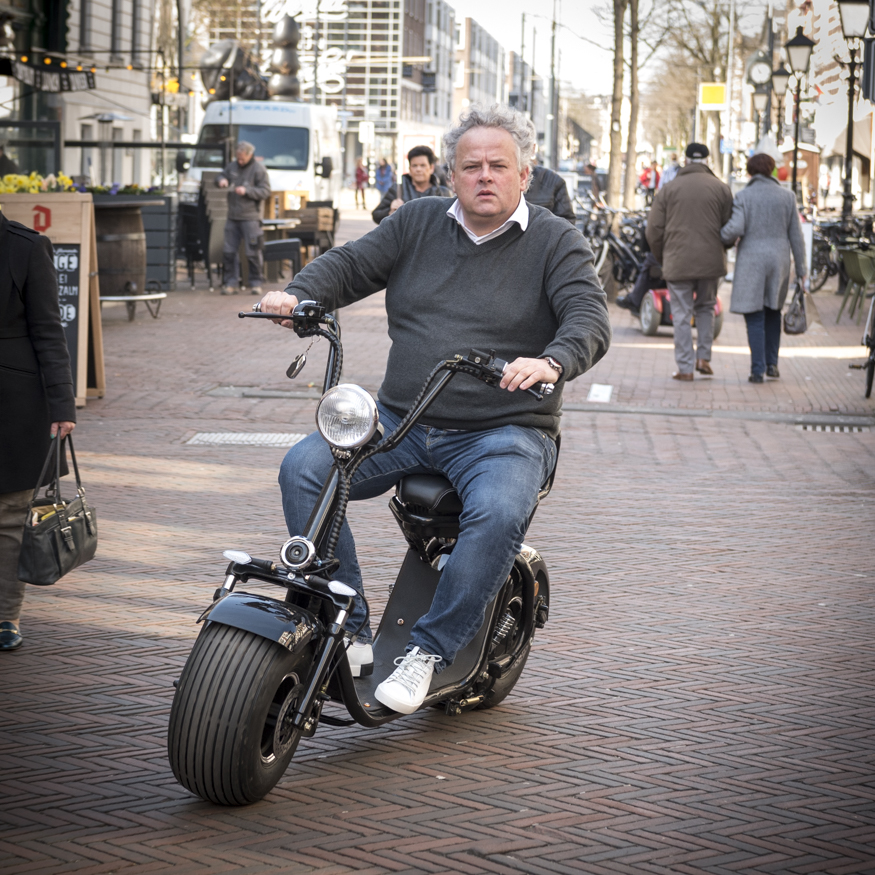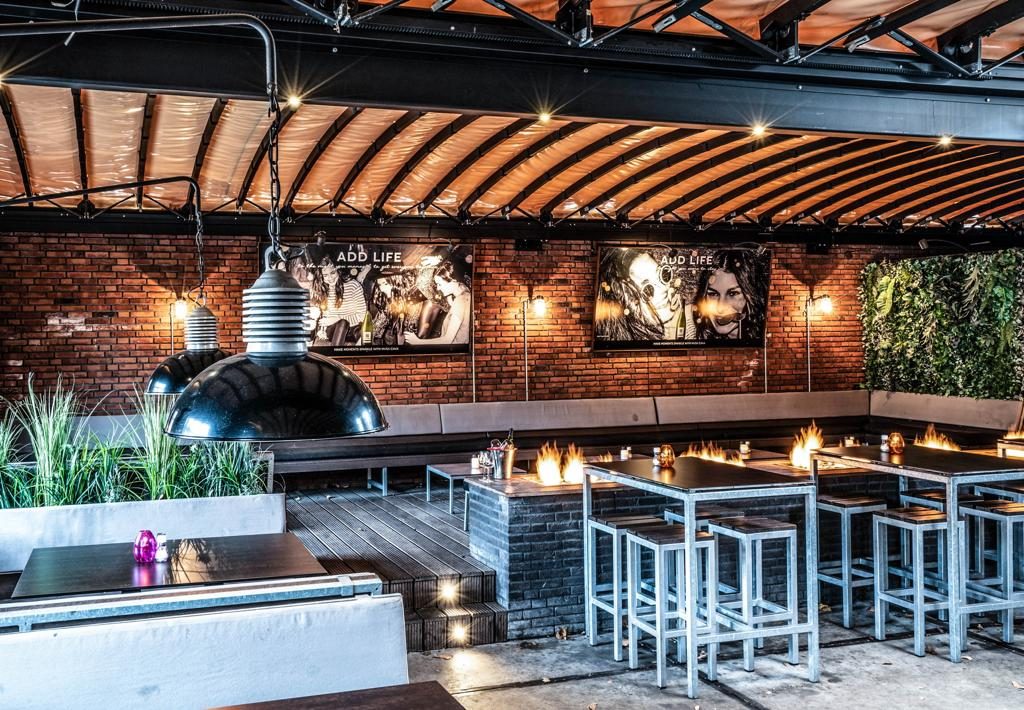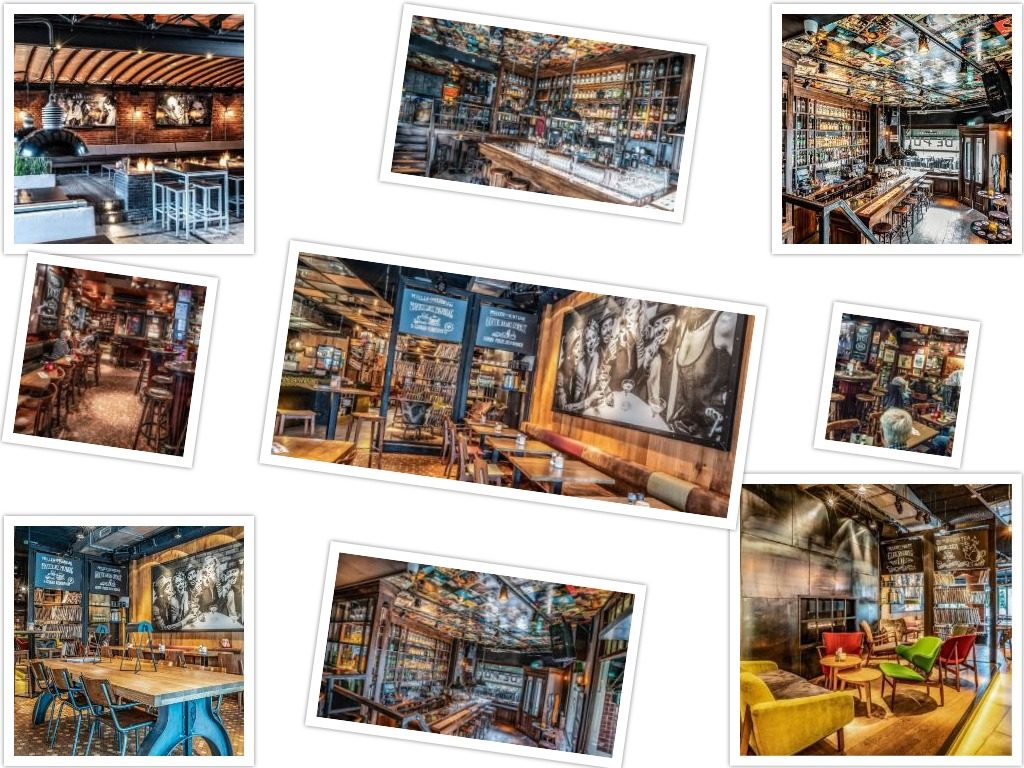
In Rotterdam they know him as the man who put Dok 99 on the map in 1998 and then started working for Heineken as a representative. That was in 2000. “I had a great time and made it to regional director South Holland; a nice job where I also got to know the other side of the hospitality industry.” However, Robèr quit his job in 2011. He wanted to go into business. Taking over Melief Bender seemed like a childhood dream to him; “the pub where I drank my first beer. I became owner; a risky step, but I consciously chose entrepreneurship”. Robèr now owns Melief Bender, café de Pui in Rotterdam and Muller & Co in the center of Berkel & Rodenrijs and is constantly looking for new opportunities. An enthusiastic hospitality entrepreneur.
HorecaAdviesBureau.nl interviewed Robèr Willemsen at Muller & Co and asked him the following questions:
1) What does "horeca" mean to you?
The word Hospitality Industry covers the load better. It is more than just hotels, restaurants and cafes, Robèr feels that even the taxi in a city or village should contribute to the feeling of hospitality. The hospitality industry is the place in an increasingly individualistic world, where people have to work harder and harder, the place where people can meet, relax and be entertained, in other words: the social hub of life.
For Robèr, the fun lies in helping others develop, so that if they have the ambition and the capacities to want to become an entrepreneur, they can become that too. Unfortunately, that is not really possible for some, but the ambition to become an assistant manager or manager is also a good goal for him. Keeping employees happy in this is a challenge. Many employees want too much too fast and that makes the process of satisfying, training and educating employees his biggest challenge.
From a business point of view, managing the cost structure is the most difficult, for example personnel costs, which are rising due to government measures, including the Balanced Labor Market Act, with 3.5% of which 0% ends up with the employee. The idea of more permanent jobs in the hospitality industry is a very difficult one. Seasonal work is, after all, seasonal work. Students often want a flexible job themselves, or mothers with school-age children want time off during the holidays. The demand for more permanent jobs does not come from the industry but more from the trade unions, whose objectives are no longer in line with today's times. For the current generation, labor is more than just money. They are mostly looking for training, participation, free time, development, a social life and of course money. The shortage on the labor market does not lead to exploitation, which shows a great deal of naivety on the part of the unions.
From a business point of view, managing the cost structure is the most difficult, for example personnel costs, which are rising due to government measures, including the Balanced Labor Market Act, with 3.5% of which 0% ends up with the employee. The idea of more permanent jobs in the hospitality industry is a very difficult one. Seasonal work is, after all, seasonal work. Students often want a flexible job themselves, or mothers with school-age children want time off during the holidays. The demand for more permanent jobs does not come from the industry but more from the trade unions, whose objectives are no longer in line with today's times. For the current generation, labor is more than just money. They are mostly looking for training, participation, free time, development, a social life and of course money. The shortage on the labor market does not lead to exploitation, which shows a great deal of naivety on the part of the unions.
3) How wil you / how did you solve these challenges
Openness, transparency and respect is my way of solving challenges regardless of the person or position. I talk to everyone, even if it is sometimes a bit confrontational. Ultimately, this creates a form of reasonableness that leads to solutions. My frustration is that I can do this because I know people from a position and dare to speak to people while this is often still difficult for many others, I try to help people with this, with things such as living environment, noise, waste and permits. .

4) What is the biggest challenge for the hospitality entrepreneur?
Government policy is today's biggest challenge for entrepreneurs, partly in terms of costs but also due to the patronizing by the government. Mentioned are the prevention policy, smoking bans, alcohol legislation, which cause irritation. “Let the entrepreneur do business”, delete the rules that cannot be enforced and if society needs something and the entrepreneur does not participate in this, he will notice this in his revenue in his business operations. We also miss the liberal idea a bit, more and more is being laid down in legislation to keep people happy.
5) Which entrepreneur would you like to ask a question to?
I would like to ask my question to Pim Evers, entrepreneur of several hospitality companies and chairman of KHN in Amsterdam, such as Canibale Royale, Club Claire, Meneer Nieges, Vergulden Eenhoorn, Disco Dolly and De Bloemenbar, a young ambitious and driven entrepreneur. My question to him is: Where do you get the ambition, energy and drive and political correctness to keep doing this?


